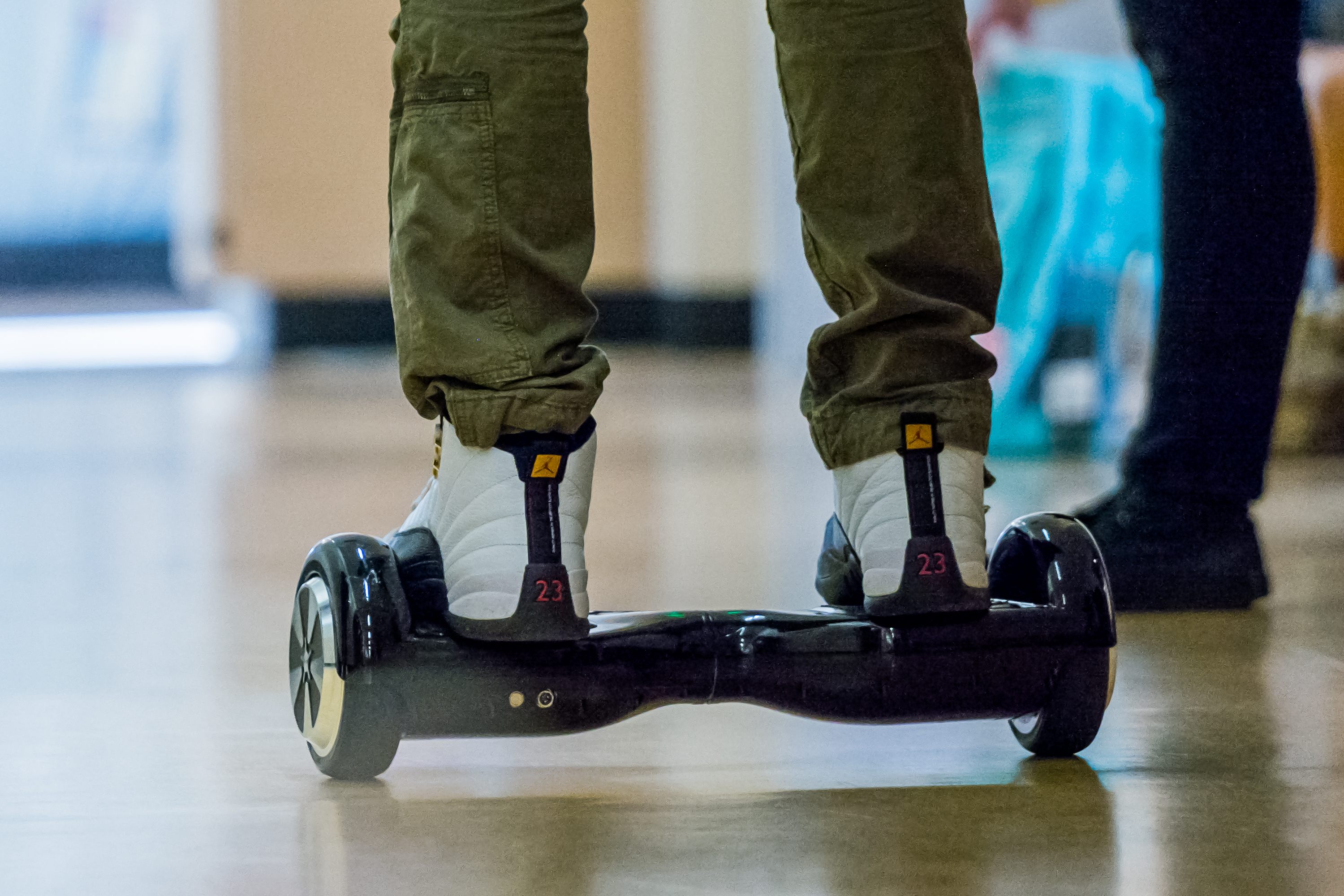Officials at Kennesaw State University announced Tuesday, January 16 that hoverboards and all similar devices are banned on both campuses, effective immediately.
According to the email sent to staff and faculty Tuesday, the ban covers “the use, possession and/or storage of hoverboards (self-balancing scooters, battery-operated scooters, hands-free Segways and other similar equipment).” These devices are no longer permitted on any university-owned property, including all buildings on both campuses, the Sports and Entertainment Park, and Fifth Third Bank Stadium.
The email encourages everyone to report any violations of this ban by calling campus public safety, using the LiveSafe app, or going to KSU’s concern website.
“Violators will be subject to conduct action,” KSU Chief of Police Roger Stearns said in the email.
“Please do not bring these items onto the KSU campuses,” Stearns said in the email. “Thank you for your cooperation.”
Michael Sanseviro, the associate vice president for Student Affairs and the dean of students, explained that many university officials were involved in the discussions about the devices.
“Ultimately, life safety is paramount,” Sanseviro said, “and the recommendation of the Fire Marshall as presented to the vice president of operations is what guided the decision.”
He noted that, as far as he knows, there have not been any reports of incidents or injuries on campus related to these devices.
KSU is by no means the first university to take this step.
The University of North Georgia issued a ban on these devices effective January 4, 2016. The notice was emailed to all students, faculty, and staff as well as posted on the school’s official Facebook page.
According to UNG Chief of Police Justin Gaines, it was “the numerous fire hazard of the devices that have been reported” that triggered the decision to ban them. He also notes, however, that no incidents involving self-balancing scooters had been reported on campus.
Georgia State University was the next to ban the devices. A notice was posted on the school’s official Facebook page January 8, 2016, telling everyone to “please leave your hoverboards at home.”
Both GSU and UNG included in their notices that residential students should no longer bring these devices to campus. As of press time, KSU had made no such provision.
The fire hazards referred to by each of the universities have been occurring across the country as early as November. In Louisiana, a boy charged his hoverboard after one day of use, and the device burst into flames and destroyed their home.
In early December, a mall in Washington state was evacuated after someone’s scooter exploded and started a fire.
An Alabama man was riding his hoverboard on the sidewalk when it caught fire beneath his feet. He jumped off and had to bring cups of water to extinguish the fire. According to reports on these cases, it is difficult to obtain a refund in these instances from the manufacturers.
Reports say the scooters’ lithium-ion batteries are to blame for the explosions. These are the same batteries used in smartphones and tablets. When made properly, they run a low risk of anything happening. Some companies, though, are trying to cut corners, and the cheaper hoverboards are made with low-quality batteries that have a tendency to explode and catch fire at random.
Though KSU’s ban on hoverboards when into effect January 14, there was no announcement on the school’s Facebook page, and the email was mistakenly sent to staff and faculty only, not to students.
The Twitter account for KSU did make an announcement, but it did not link to an explanation of the ban or its full extent.
“It was absolutely the intent of the chief of police for every student to receive it via email,” Sanseviro said. He claimed he is working with University Information Technology Services to correct the issue.
There has been plenty of debate over the name of these devices. They have been called self-balancing scooters, hands-free Segways, personal transporters and more. The name that has been the most popular, however, is also the most inaccurate. The public and the media refer to them most often as ‘hoverboards’ despite the fact that they have wheels and do not hover above the ground.


